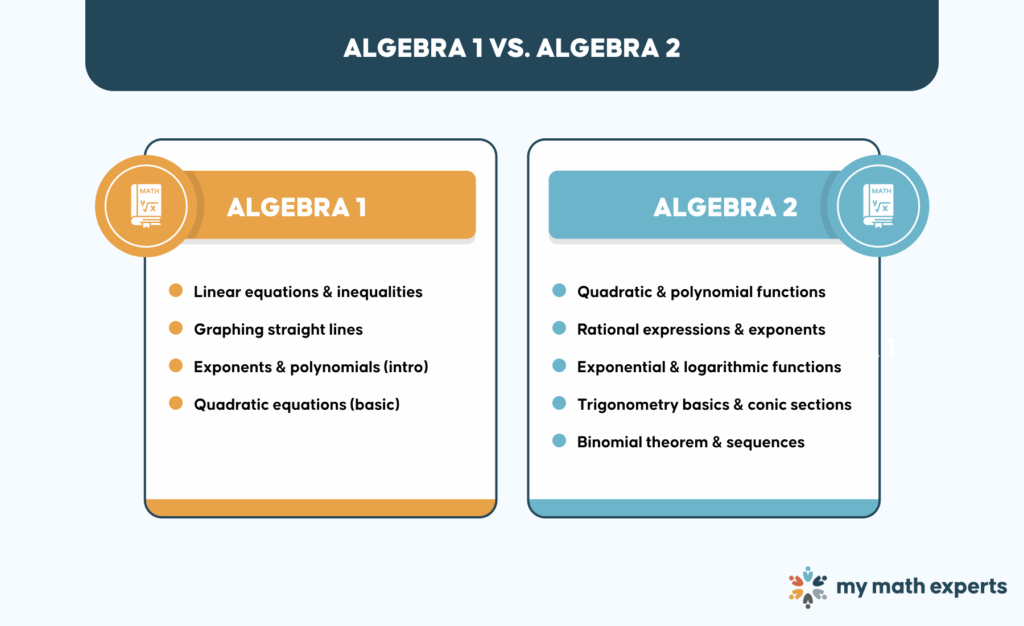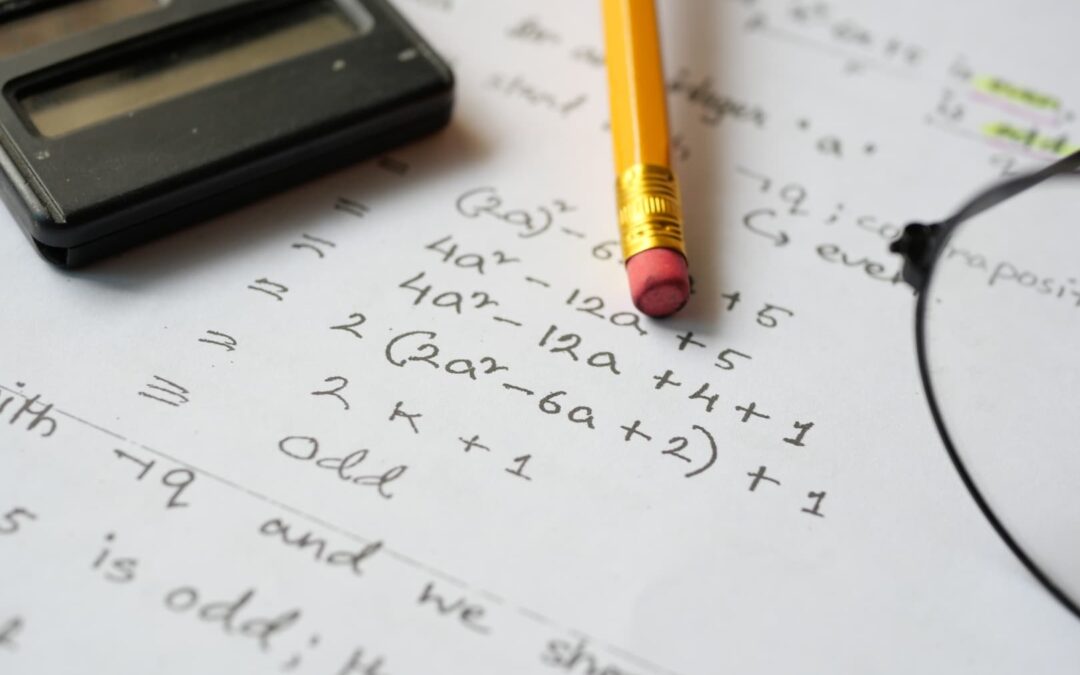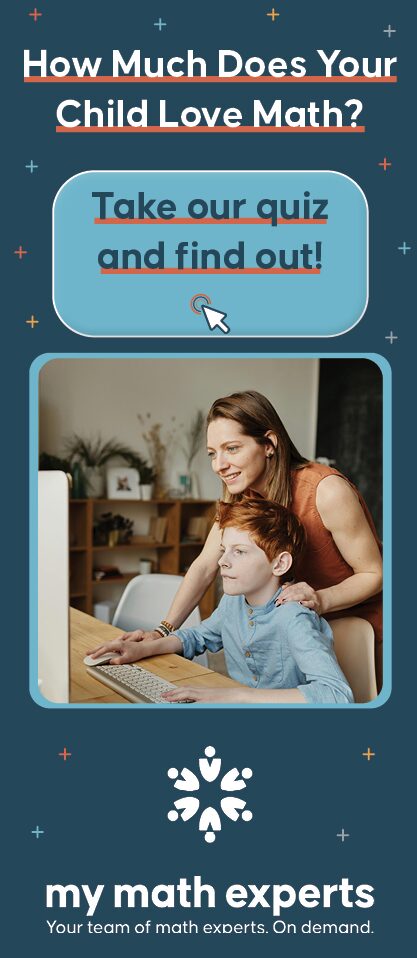Key Takeaways
- Algebra 2 is more challenging than Algebra 1, as it introduces abstract ideas involving complex equations and functions, along with new topics such as complex numbers and logarithmic functions. A solid understanding can make Algebra 2 manageable.
- Through consistent practice, problem-solving, and strategic study, many students can bridge the gaps in their understanding of Algebra 1 and avoid the common setbacks.
- One-on-one support from certified math tutors, like My Math Experts, equips students with the fundamental skills and knowledge needed to tackle higher-level, more advanced math.
Algebra 1, compared to Algebra 2, is relatively simple, and most students don’t face difficulties with it. However, when they reach higher classes and encounter Algebra 2 problems, it becomes significantly more challenging. The sums that seem simple in Algebra 1 are now relatively quite complex, challenging, and don’t merely want you to find the value of ‘x’. Students now encounter multi-step problems, function graphs, and concepts that seem more abstract than before.
So, let’s get to the main question: Is Algebra 2 hard?
The answer to the above question depends on an individual student’s understanding of mathematical concepts and other complex, relevant problems and topics. Once a student has clarity, they will start enjoying not just introductory algebra but also advanced problems. With a good foundation, a clear plan, and regular practice, Algebra 2 can become easier.
In this blog, we will explore the reasons why students often struggle with Algebra 2. It also covers the topics that appear in the course. You will find practical steps to help your child (or yourself) succeed in 2026 and beyond. Also, you will see how professional tutoring, especially one-on-one with a certified math teacher, can make a significant difference.
Is Algebra 2 Harder Than Algebra 1?

Let’s get straight to the point. Yes, Algebra 2 is undoubtedly more complex than Algebra 1, and the difficulty level increases further with subsequent steps.
Algebra 1 covers:
- Basic algebraic expressions & operations
- Solving linear equations & inequalities
- Graphing linear functions
- Systems of linear equations
- Exponents & exponential functions
- Polynomials & factoring
- Quadratic equations (intro level)
- Radicals & rational expressions (basics)
- Introduction to functions & relations
- Word problems & real-world applications
Algebra 2 covers:
- Linear equations & functions
- Quadratic equations & polynomial functions
- Rational expressions & equations
- Exponential and logarithmic functions
- Complex numbers
- Conic sections (circles, parabolas, ellipses, hyperbolas)
- Sequences and series
- Probability and statistics
- Matrices and linear systems
- Trigonometric functions (intro level in some curricula)
Now, let’s understand the differences.

Why do students struggle more in Algebra 2?
- Algebra II moves quickly, building on the foundation of Algebra 1. So, students who are not fluent in Algebra 1 will struggle in the next stage.
- While Algebra 1 is still concrete for solving x, Algebra 2 introduces ideas (like conic sections or exponential growth) that feel less tied to everyday school work.
- Any gaps from middle school or Algebra 1 should be addressed here. Struggling with linear functions, for example, makes it harder to handle quadratic equations.
Why does it matter?
Algebra 2 is also commonplace in the later years of secondary school. It is the foundational building block taught in almost all colleges, in addition to being a substantial portion of standardized assessments, with a significant weightage on the respective questions asked in the admission tests.
Students are introduced to various mathematical concepts, including quadratic equations, polynomial functions, logarithmic functions, rational expressions, conic sections, and complex numbers. The main challenge lies in solving these concepts virtually, which requires a block of abstract reasoning. This is a sufficient indicator of a student’s preparedness in STEM domains, AP courses, and other advanced problem-solving.
For parents, here’s the bottom line: Algebra 2 proficiency positively contributes to improved grades, increases test scores, and augments the strength of college applications. The unfortunate truth is that struggling with Algebra 2 difficulty can severely limit one’s future opportunities. However, excelling in the subject can turn the future into a landscape of possibilities. What is the best way to achieve such a goal? The answer lies in a structured study plan, followed by regular practice, and if necessary, personalized instruction with a competent tutor.
Key Topics That Make Algebra 2 Challenging
Algebra 2 isn’t just “harder Algebra 1.” It introduces new material that feels like a big leap for many high school students. Here are some of the areas where students often get stuck, and where parents usually see the frustration show up at home:
- Quadratic Equations & Polynomial Functions
Instead of simple lines, students now graph parabolas and higher-degree curves. Factoring, graphing, and solving require precision — a big leap from Algebra 1 basics. - Rational Expressions & Complex Numbers
Fractions now include variables, and imaginary numbers enter the mix. These abstract ideas often trip up even strong math students. - Exponential & Logarithmic Functions
Brand-new concepts for most students. They’re practical (growth, decay, interest), but can feel like a foreign language at first. - Conic Sections
Circles, ellipses, parabolas, and hyperbolas now come with formulas and algebraic manipulation. One small mistake can throw off the entire solution. - Word Problems & Abstract Thinking
Equations are no longer straightforward. Students must translate real-world scenarios into multi-step algebra problems — a skill that demands both logic and confidence.
Tips to Succeed in Algebra 2 in 2026

Success in Algebra 2 isn’t about memorizing every formula; it’s about mastering concepts, applying them to real-world problems, and using the right tools.
- Smarter Study Approaches
- Consistent 1:1 tutor: The one who identifies gaps early with your child, for example, linking Algebra 1 foundations (linear equations) to new material like quadratic equations or polynomial functions. We have written a comprehensive guide on finding an Algebra 2 Tutor.
- Better understanding of topics before starting complex problems: Students succeed when they isolate one topic at a time, such as rational expressions, before moving into complex numbers, instead of juggling everything at once. This helps improve math concepts, abstract concepts, applied mathematics, pure mathematics, and high algebraic manipulation skills.
- Applied Practice: Problem solvers that mirror real-life applications (like compound interest for exponential functions or population growth models) help students with consistent efforts see why Algebra 2 matters.
- Leveraging Technology for a Better Understanding of Algebra 2
- Interactive platforms: Many Algebra 2 learning sites require you to enable JavaScript, which have explanations through visual graphing, step-by-step solutions, and practice sets that make learning easier and enjoyable.
- Experimental free tools with multiple trial and error options: Graphing calculators, Desmos, and online whiteboards provide students with a new window to experiment with functions and spot errors faster than pencil-and-paper alone.
- Focused digital habit without distractions: Parents should treat online study sessions like class time, no multitasking. “Reply cancel, return to math work” should be the mindset.
- University-level resources: External websites, including math pages from Duke University, former teachers, and other admissions experts, offer advanced examples on topics like conic sections, linear algebra, geometry formulas, logarithmic functions, and polynomial functions.
When students are pushed into math classes without an appropriate foundation for some of the hardest math topics, a lot of time is often spent on frustration and low accuracy. This is where My Math Experts makes the difference.
Why Should Parents Choose My Math Experts?

- Certified Math Teachers & College Professors: All of our tutors are either certified and have teaching experience, or hold a higher degree in mathematics and work as college professors.
- Consistency That Builds Confidence: Every student has the same tutor throughout the entire course, eliminating the need to relearn the same concepts due to tutor turnover.
- Personalized Plans: Each child begins with a free trial session, which is followed by a learning plan tailored to their grade, learning pattern, and academic aspirations.
- Direct Access: Need to reschedule or adjust? Parents can easily reach the tutor by phone or through the online scheduling system.
- 1:1 Private Tutoring: Sessions are designed to break down complex topics like quadratic equations, polynomial functions, and complex numbers into clear, manageable steps.
What Parents See?
- Better Grades: Students achieve higher scores, and the quality of their homework improves.
- Stronger Problem-Solving Skills: Rational expressions and even intricate concepts, such as conic sections, and story-based problems become easier to understand.
- Confidence in Math: Students develop a positive self-image towards mathematics and start to believe that they can not only do Algebra II, but also advanced mathematics and AP courses as well.
Do you know how to Get Started?
- Book a Free Trial – Your child works with a potential tutor.
- Meet the Director – At the end of the trial, you’ll discuss progress, goals, and next steps.
- Start the Plan – Consistent, tailored tutoring that fits your schedule.
With My Math Experts, Algebra 2 doesn’t have to be overwhelming. It becomes a subject where your child can grow and build skills that last beyond next year, into high school.
FAQs About Algebra 2 Tutoring with My Math Experts
- What makes My Math Experts different?
We only hire certified math teachers or college professors, not generic tutors. Your child works with one consistent tutor every session for stronger results. - How fast will I see results?
Most parents notice improvements in grades and confidence within 3–4 weeks, accompanied by regular progress reports from the tutor. - How flexible is scheduling?
Very. Adjust sessions anytime by direct phone number or our easy online scheduling platform, no waiting, no hassle. - What happens in the free trial?
Your child solves Algebra 2 problems (from their homework or My Math Experts materials) with a potential tutor. Then a Director joins to review progress, answer your questions, and map out a custom plan. - Does tutoring help beyond Algebra 2?
Yes. Students gain confidence in problem solving with polynomial functions, complex numbers, and conic sections, and are better prepared for calculus and AP classes as well as for college admissions.

